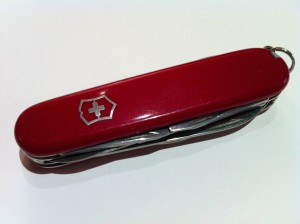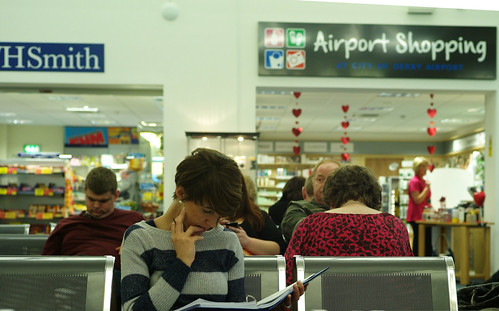Sligo mountains seen from the beach at Mullaghmore. An HDR image created with an iPhone 4 on a freezing, windy day.
St Petersburg: the helicopter view
Wow! A helicopter tour of St Petersburg. Amazing — except for the music. Wonder if they’ve done it for other cities? Amsterdam, for example.
Cloud-capped slopes
Making sense of Davos
After Adrian Monck had decamped from poorly-paid academic life to well-heeled employment in charge of Public Affairs for the World Economic Forum he once gently chided me for an intemperate, exasperated comment I had made about the Forum’s annual talkfest. In retrospect, I think I was reacting to the infuriating smugness of journalists (and bloggers) who were really just flaunting their entree into such an exclusive club — much as sports reporters might flaunt a ticket to the dining room at Augusta National during the Masters. But because I take Adrian seriously, I started paying more attention to what goes on in Davos. So I was intrigued to find that he has started blogging again with this thoughtful post. “Davos”, he writes.
“is an independently-minded mountain community, steeped in Switzerland’s direct democratic tradition. Its altitude and an enterprising doctor, Alexander Spengler, made it a destination for well-heeled tuberculosis sufferers. Thomas Mann set his comedy of ennervation, The Magic Mountain, in one of its sanatoria. Albert Einstein helped kick-start its reputation as an intellectual retreat (video).
Davos today is a working alpine town. The town’s tourism is a functional contrast to the chocolate box world of Villars, Zermatt and St Moritz. The Forum’s Annual Meeting boosts the local economy, but not its winter sports. Barely one-fifth of those participating can be accommodated in a five-star hotel. The local ski-lift company has contemplated shutting the lifts during the Meeting. When I’m there, as a member of the Forum, I sleep on a single bed and share a bathroom. Hardship? Not really, but it is work.
And that suits the Forum, because it deals with the world as it is, not as it would prefer it to be. It is not a decision-making body. Nor is it a conspiracy in which the horological components of global governance and industry are wound together to frustrate the rest of the world…”.
Of course one has to remember that he works for the forum, so the Mandy Rice-Davies caveat applies. Still, the next post on the blog gives a set of interesting, contradictory and sometimes critical perspectives on this year’s event.
I’ve been to Davos once — many years ago, long before the Forum was thought of. I thought it a rather dull, workaday place, quite different from St Moritz which is just around the corner. I remember it chiefly because I bought a Swiss Army knife there which I still have.
It’s Groundhog Day on the “sources going direct” question
Acute blog post by George Brock.
Rupert Murdoch rarely says or does anything which doesn’t cause dismay somewhere. So it has been with his appearance on Twitter.
The octogenarian’s pithy provocations, unmediated by spin-doctors, have been enough to start yet more worries about the future of journalism. People were apparently in all seriousness sitting around at a seminar in the Columbia Journalism School considering the question of “sources” who “go direct” (to the audience, that is). The language itself is unintentionally revealing: how dare these people cut out the middleman and communicate directly with people? The seminar anxiously wondered if this would be “good for journalism”.
That will depend on how well journalists adapt to a transformative change.
Yep. George’s Inaugural Lecture laid out the argument nicely.
Dutch make Net Neutrality a legal principle
From BBC News.
On 22 June, the Dutch Parliament passed a law stopping mobile operators from blocking or charging extra for voice calling done via the net.
The bill must now pass through the Dutch senate, but its passage is expected to be a formality.
The move may prove crucial in Europe’s on-going debate over net neutrality.
Net neutrality is controversial around the world, with heated discussions on the subject taking place in the United States, Europe and many other regions.
The idea it enshrines is that all internet traffic should be treated equally, regardless of its type – be it video, audio, e-mail, or the text of a web page.
However, ISPs said they need to discriminate because unchecked traffic from some applications, such as games or file-sharing programs, can slow down their entire network for all customers.
As a result many ISPs throttle, block or charge extra for many bandwidth hungry applications and content…
Neelie Kroes on SOPA, copyright, etc
I can never make up my mind about Commissioner Kroes. She often says intelligent things about IPR, the open Internet, etc.
For example, this:
The European Union endorses net neutrality principles, which state that telecommunication companies may charge extra for some services, but need to tell customers what they are doing.
The European Commission has adopted a “wait and see” approach with Neelie Kroes, Commissioner for the Digital Agenda, stating in April that Brussels would spend 2011 “closely looking at current market practices”.
Ms Kroes promised to present the findings and publicly name “operators engaging in doubtful practices” at the end of 2011.
But she’s also part of an organisation that often seems to act cluelessly in these areas.
Total absorption
I really admire people who can focus on work while waiting for a plane.
An Ecology of Mind
This is the trailer for Nora Bateson’s intriguing film about her father, Gregory, which my OU colleagues are screening on February 13 at 19.00 in the Berrill Theatre at the University’s campus in Milton Keynes. I hope to be there.





